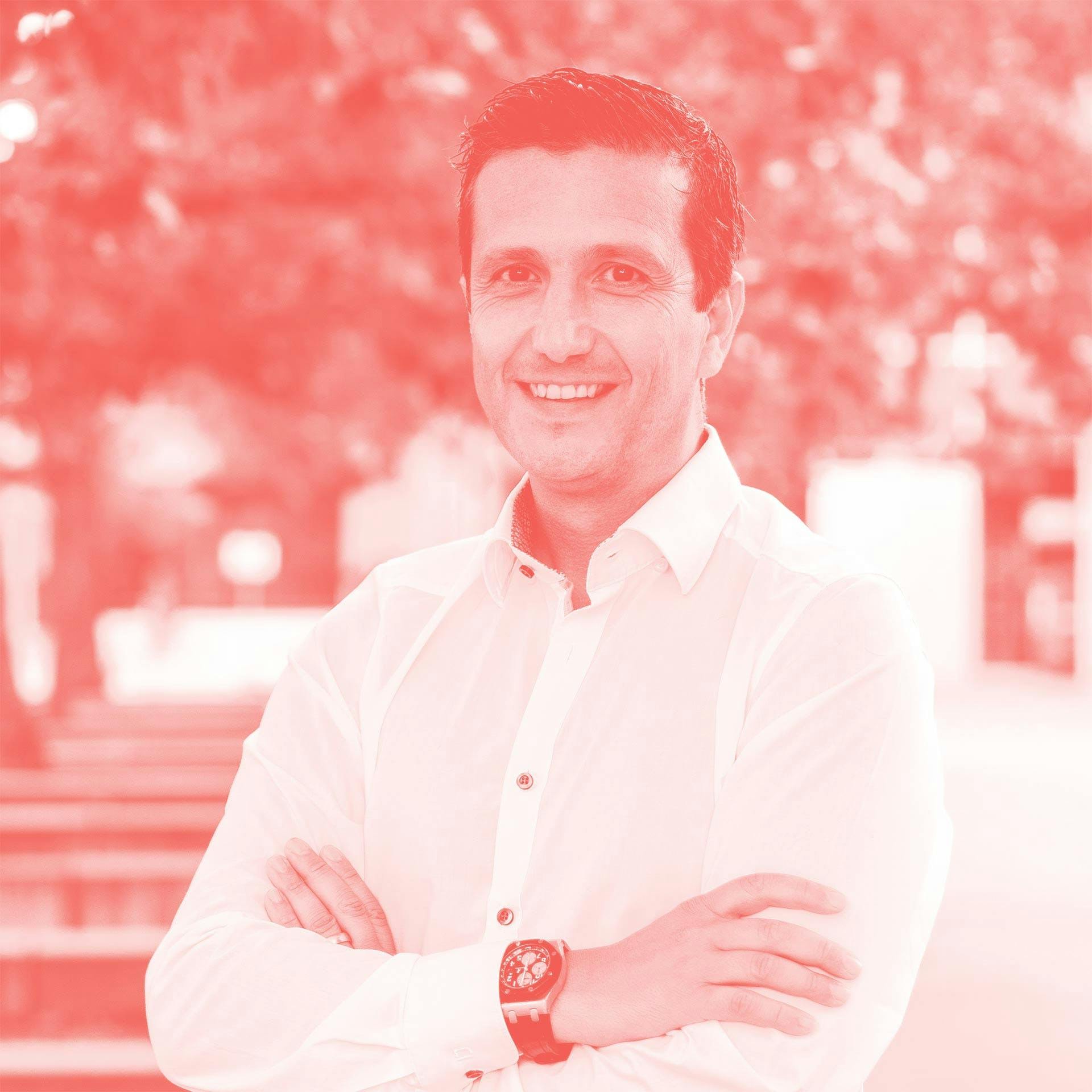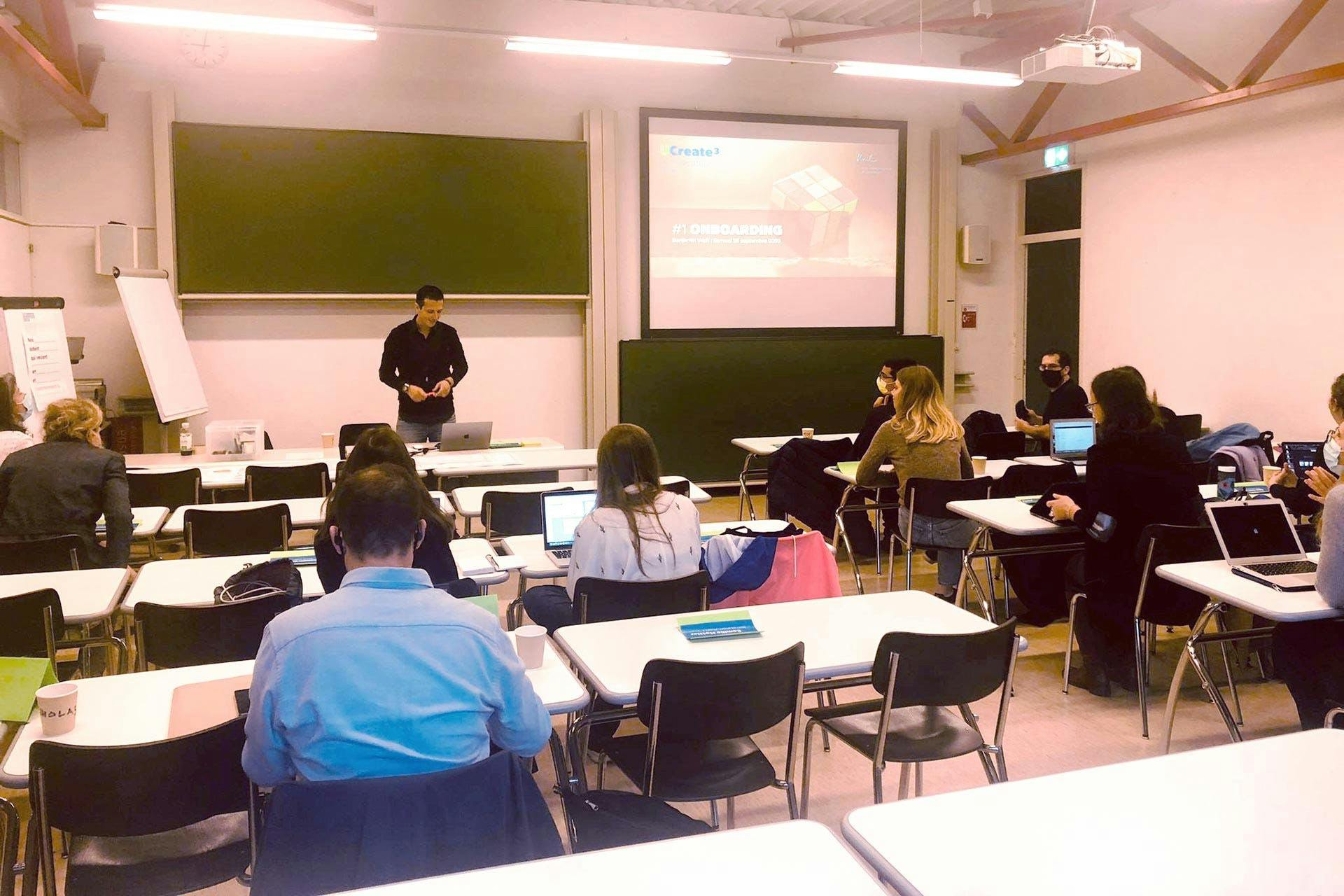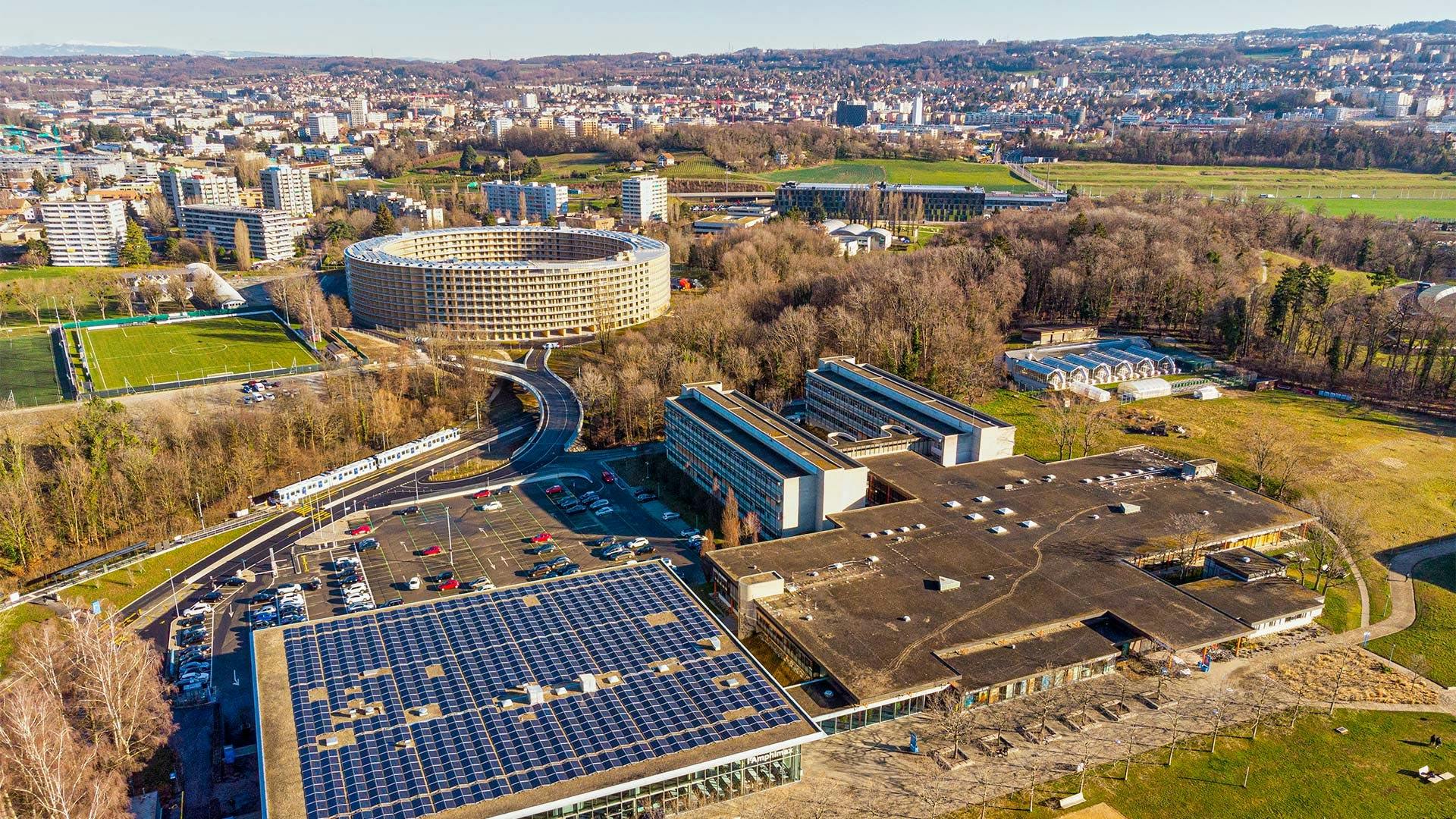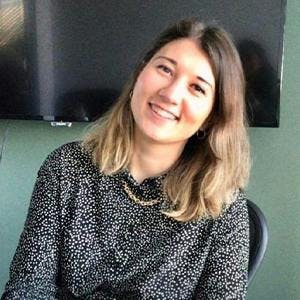How the University of Lausanne’s HUB Entrepreneurship and Innovation is supporting entrepreneurship
witzerland is one of the most innovative countries in the world and is home to a thriving startup ecosystem. The nation has strong support for entrepreneurs, and its leading educational institutions are key players in the development of new ideas and technologies.
At the University of Lausanne, HUB Entrepreneurship and Innovation was launched to boost innovation among students, researchers and the wider community by providing support in entrepreneurial skills. Benjamin Weill, program manager and head of accelerator, explains what makes the initiative’s UCreate programs unique and how he sees the Swiss startup scene.

Benjamin Weill. Photo: ©UNIL
An entrepreneur at heart, Benjamin Weill has cofounded two startups. He is also an experienced marketing and communications professional with more than 15 years of experience, including management positions in digital TV, ICT, multimedia and TV channel distribution for Swiss and European SMEs. He has headed HUB Entrepreneurship and Innovation’s UCreate programs since their foundation in 2019.
What is HUB Entrepreneurship and Innovation?
In 2019, the University of Lausanne strengthened its activities to support entrepreneurship by creating an entrepreneurship and innovation hub. The goal was to bring innovative solutions to the challenges of our society through the campus community.
HUB Entrepreneurship and Innovation aims to inspire through the co-organization of events such as Global Entrepreneurship Week, webinars and innovation challenges; to educate through interdisciplinary workshops and courses that help students acquire tools and develop their entrepreneurial projects; and to activate through the UCreate programs, which promote entrepreneurial spirit in the UNIL community and help individuals explore and develop their ideas and projects.
What are the UCreate programs?
UCreate offers three programs:
- UCreate1: a quick one-to-one for feedback on any entrepreneurial idea or project.
- UCreate2: a three-evening exploration workshop and coaching journey that takes place over a month, to evaluate an idea up to the value proposition.
- UCreate3: a complete sixteen-week acceleration program.
The main objective of the UCreate3 program is to encourage, facilitate and accelerate the creation and development of at least eight innovative and interdisciplinary projects per semester. Participants undertake training modules, guided by a coach dedicated to each project. They also receive access to a coworking space and financial support.
The UCreate philosophy is to support people on their entrepreneurial journey. Participants are encouraged at each step, from validation and testing on the market through to desirability, feasibility and viability of a project. We follow a hypothesis-driven process and highly encourage interdisciplinary collaboration. Participants learn by doing and receive feedback from peers and experts.
UCreate programs are open to University of Lausanne students, professors, researchers, alumni and collaborators. At least one team member must meet the UNIL community criteria of eligibility, but every cohort has a diverse mix of participants from different academic backgrounds and institutions.
I see the future of the Swiss innovation scene as extremely bright and rising.
What do participants need to take part in UCreate’s acceleration program?
The selection process consists of two phases. The first is based on an application with three main criteria. Sixteen jury members evaluate the project’s relevance, what makes it innovative and its potential societal and environmental impact.
Then, shortlisted teams have an interview, where the admissions committee evaluates their motivation and entrepreneurial mindset. Another important criteria is that they must not be already incorporated or have commercially launched their product or service.
What sectors is the program open to?
There’s no one focus – we are open to all kinds of projects from no tech to high-tech, for-profit or nonprofit. Projects with a social and/or environmental impact are particularly welcome in this program, which equips participants to become true agents of change.
We have accelerated projects in life sciences, digitalization, ICT, social and environmental impact and education, as well as legal, sport and other products and services. The cohorts and participants represent our seven faculties’ different domains.

UCreate Onboarding presentation. Photo: ©UNIL
What do participants learn in the UCreate accelerator?
The principal skills learned in the process are leadership, team understanding, value proposition, testing and prototyping, business modelling, communication and presenting. The course also covers legal and financial issues such as cash-flow management.
During and after the program, participants have access to coworking space. They can also receive financial support of up to CHf 10,000, dependent on needs identified during the program. This is intended for validation and prototyping of projects, not for commercial development, and forces participants to validate their hypotheses before launching or, perhaps, to realize that there is perhaps no market fit or they have to pivot.
[You may also like: Understanding Switzerland’s impact ecosystem]
Switzerland is starting to be competitive in terms of incubation and acceleration, with great opportunities for early-stage startups.
How does UCreate differ from other acceleration programs?
UCreate is focused on people, team development and the project itself. We want participants to explore and reveal their entrepreneurial talent.
In addition, the program is adapted to the academic calendar and has an interdisciplinary focus with a diverse mix of participants from seven faculties, alumni and more. The potential financial support is another standout feature, and UCreate has strong relationships with partners and the Swiss and international startup ecosystems to help graduates launch.
Finally, a differentiation also lies in the consultative governance of HUB and the programs. We have an advisory board made up of high-level personalities, such as professors from each of the seven faculties, and a student advisory board of several student associations that reflects their needs and realities. This solidly helps the HUB team and programs to be up to date and adapted to the community.
How do you see the present and the future of the Swiss startup scene?
I see the future of the Swiss innovation scene as extremely bright and rising. Bloomberg ranked Switzerland third in terms of competitiveness and innovation and the nation is also a leader in education, a European tech hub and an asset management leader with lots of market opportunity.
Switzerland is also starting to be competitive in terms of incubation and acceleration, with great opportunities for early-stage startups. There’s a strong network of coaches and entrepreneurs, academic funding ecosystems and solid support from universities such as University of Lausanne. The future is bright and we are ready for it!
Want to learn more about the Swiss startup ecosystem? Order your copies of Startup Guide Switzerland and Startup Guide Zurich now.
Written by Daria Kholod.
Main photo: ©UNIL

